A Stroll Around Kii-jo Mountain Fortress, Where You Can Experience Historical Heritage and Spectacular Views Town of Kiyama
Built along with Mizuki Fortress and Ono-jo Fortress as a line of defense for the Dazaifu Government Office, Kii-jo Mountain Fortress are a nationally-designated historic site said to be Japan’s oldest full-fledge mountain fortress. Visit precious historic sites that tell of the fortress’s construction and defense strategies of the time, then enjoy all that the nature of Mount Kizan has to offer with Ki-no-yamamichi (the fortress mountain road) written of in the Man'yoshu and panoramic views of northern Kyushu.
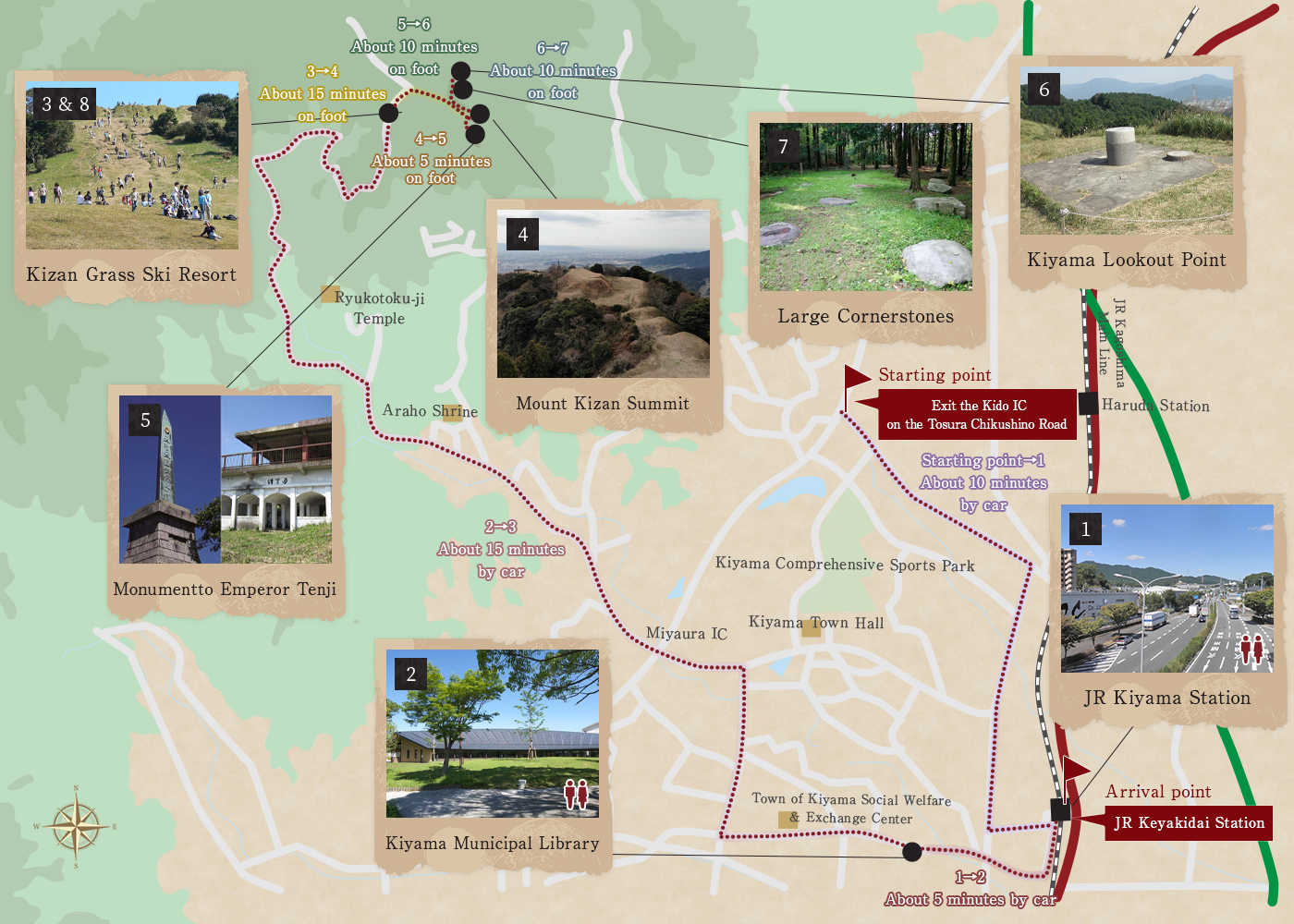
 Parking
Parking
 Restrooms
Restrooms
Exit the Kido IC on the Tosura Chikushino Road
About 10 minutes by car
Overlooking a Distant View of Kii-jo Fortress JR Kiyama Station
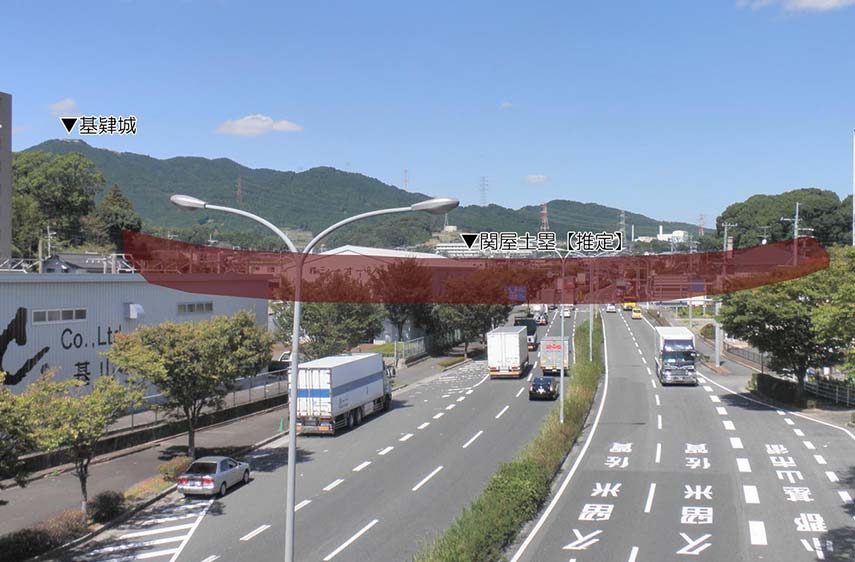
The pedestrian bridge at Kiyama Station offers distant views of Kii-jo Fortress and Sekiya Earthworks. Sekiya earthworks are a defensive facility tied to Kii-jo Fortress, where only the foundation remains today. The official road is believed to have passed through this area in ancients times and is thought to have been a major transportation hub. Based on terrain and place name, the area near the present-day National Route 3 is believed to have once been the official road.


About 5 minutes by car
Where You’ll Find Historical Documents Spanning the Eras Kiyama Municipal Library
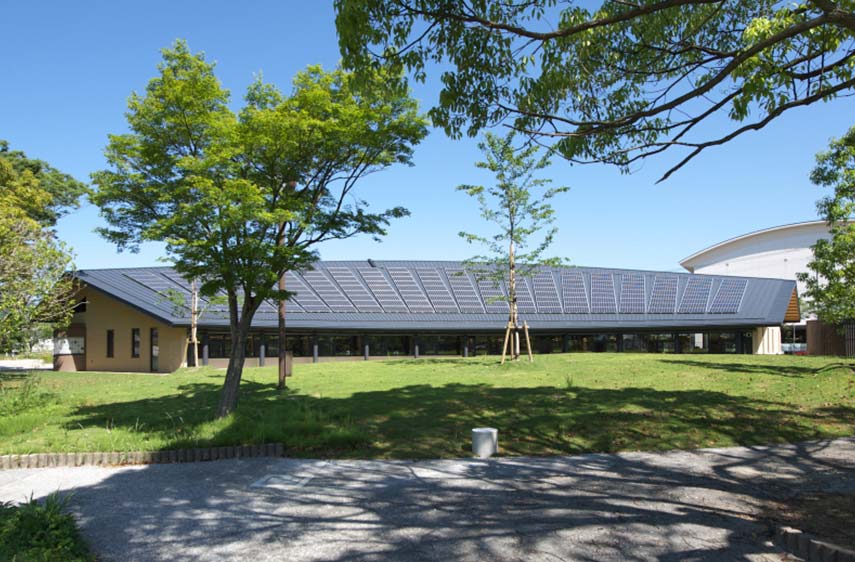
Kiyama Municipal Library has a monument of a poem written by Chikugo Provincial Governor Fujii no Onari upon the return of Otomo no Tabito, suggesting traffic along Ki-no-yamamichi (the fortress mountain road) connecting to Dazaifu. There is also a local exhibit area within the library where visitors can see tiles excavated at Kii-jo Fortress, relics from the Yayoi period, and other precious historical materials.
*Some materials may not be available for viewing depending on the exhibition schedule.


About 15 minutes by car


A Historic Leisure Spot Kizan Grass Ski Resort
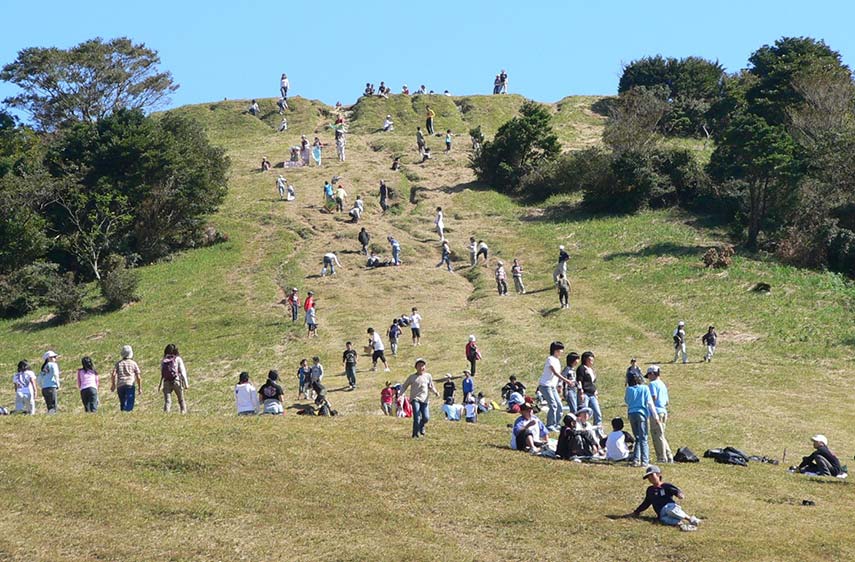
In the spring and fall, visitors can enjoy grass skiing down the slopes using wooden sleds. Grass skiing in Kiyama is mentioned in a document from 1938, meaning this has long been an important part of tourism in Kiyama. The poem from the Man'yoshu posted at the grass ski resort is said to have been written by Otomo no Tabito upon visiting Kii-jo Fortress.

About 15 minutes on foot
Offering a Panorama of Northern Kyushu Mount Kizan Summit
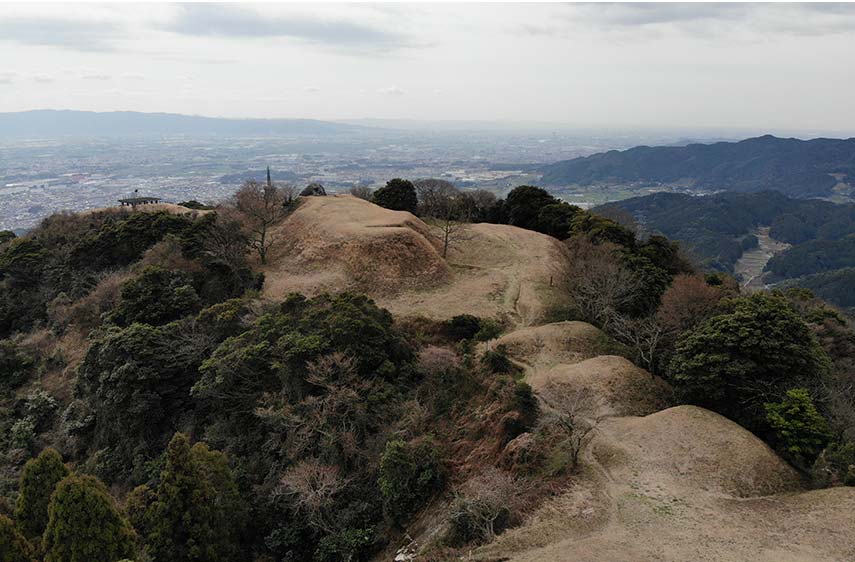
The platform at the top of the promenade leading up from Grass Ski Resort is the summit of the mountain. On this high ground is a citadel that was apparently built when Mount Kizan was used as a mountain fortress between the Nanboku-chō Period and the Warring States period, and is surrounded by side moats. This spot offers spectacular views of Hakata Bay to the north, Chikushi Plains to the South, and, on a clear day, even as far as Mount Aso and Mount Unzen.

About 5 minutes on foot
Standing on the Summit Monument to Emperor Tenji
The Monument to Emperor Tenji was built in 1933 with donations and help from many to spread awareness of Kii-jo Mountain Fortress.
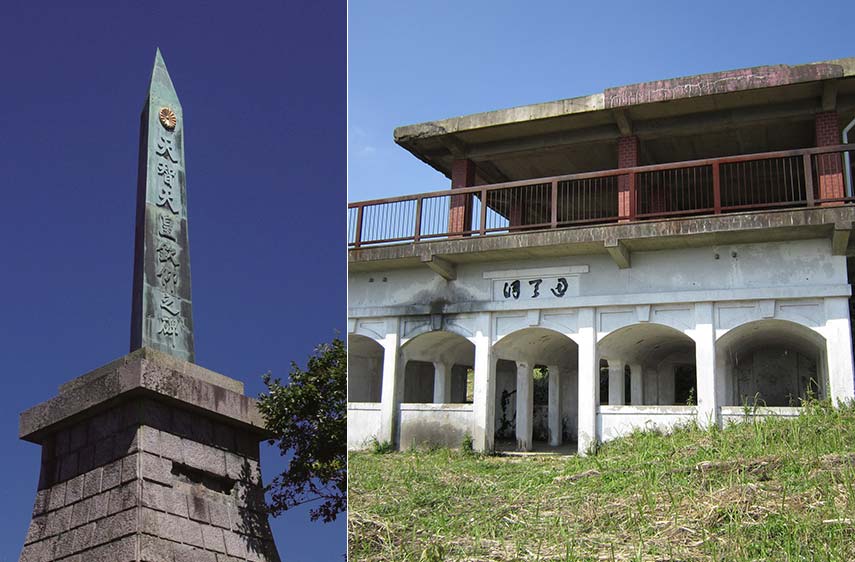

About 10 minutes on foot
Overlooking the “Western Capital” Kiyama Lookout Point
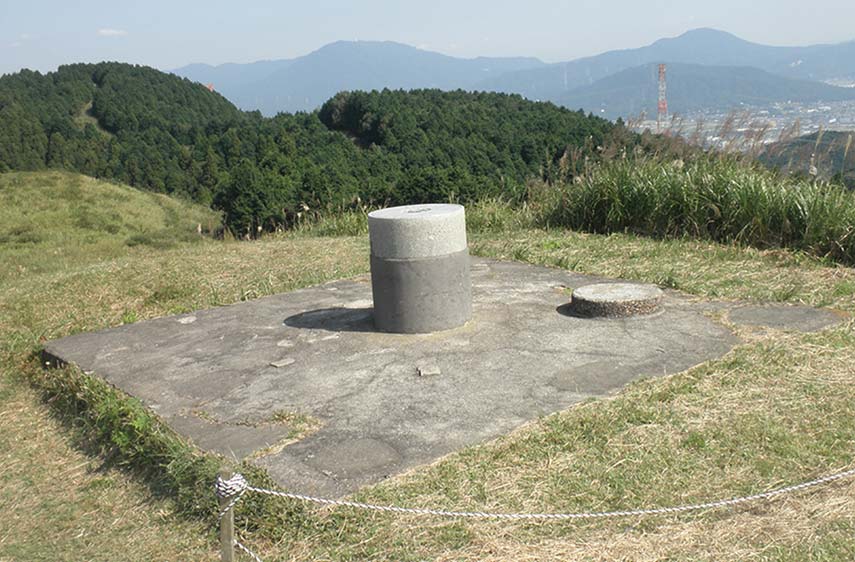
On the high ground north of the Special Historic Site Kii-jo Fortress Monument is a lookout point overlooking Hakata Bay in the distance. Here a Greek temple-style building once stood, built with funds raised for the construction of the Monument to Emperor Tenji. It was dismantled in 1985 due to deterioration, and currently only the foundations and the compass can be seen.

About 10 minutes on foot
For the Largest Building within Kii-jo Fortress Large Cornerstones
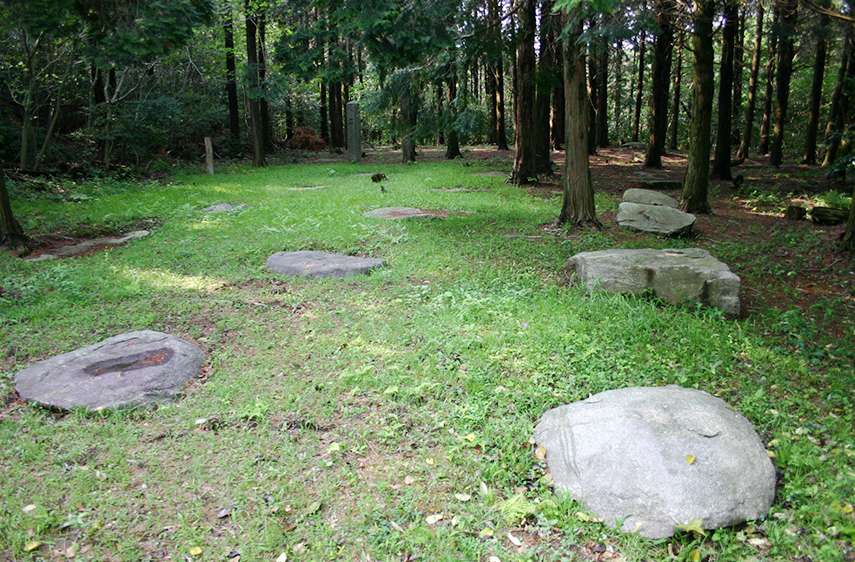
The large cornerstones are the remains of a cornerstone building built on a foundation of granite pillars. This building alone was especially large for Kii-jo Fortress, with spaces between the pillars of 18 meters by 5.4 meters, and had an area overlooking the area inside the fortress as well as many roof tiles collected from the surrounding area, meaning this was likely a facility with special significance.

About 25 minutes on foot
Kizan Grass Ski Resort
About 15 minutes by car
JR Kiyama Station

